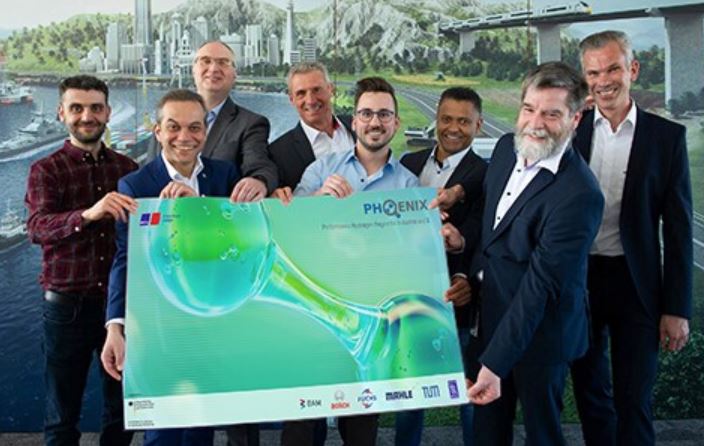Rolls-Royce, in collaboration with a consortium of five companies and research institutes, has embarked on the development of a highly efficient hydrogen combustion engine for combined heat and power (CHP) systems.
The Phoenix (Performance Hydrogen Engine for Industrial and X) project, funded by the German Government, aims to achieve the same power density and efficiency as current natural gas CHP units, with a goal of up to 2.5 MW output. This initiative represents a significant step towards carbon-neutral energy production using green hydrogen.
The Phoenix project, backed by nearly five million euros from the German Federal Ministry for Economic Affairs and Climate Protection, focuses on creating a next-generation hydrogen engine that surpasses the efficiency of existing gas-powered engines. Rolls-Royce’s CEO of Power Systems, Dr. Jörg Stratmann, emphasized the critical role of combustion engines in ensuring reliable energy supply during the transition to renewable energy sources. The project will build on the current mtu engine technology, which can already utilize hydrogen as a fuel, to develop a more efficient hydrogen combustion engine.
The pursuit of a highly efficient hydrogen combustion engine by Rolls-Royce and its partners is noteworthy within the context of global efforts to decarbonize energy systems. Compared to existing technologies, such as those developed by companies like Siemens and Cummins, the Phoenix project aims to achieve a higher power density and efficiency. The focus on creating a hydrogen engine that matches the performance of natural gas units in the higher power range positions Rolls-Royce at the forefront of sustainable energy innovations.
The consortium includes the Institute for Sustainable Mobile Propulsion Systems at the Technical University of Munich, MAHLE Konzern, Fuchs Lubricants Germany GmbH, the German Federal Institute for Materials Research and Testing (BAM), and Robert Bosch AG. These partners are tasked with developing key components such as the injection system, piston group, and ignition system, as well as a new lubricant. The project is scheduled to span three years, culminating in a mature technology concept ready for prototype testing.
The German government’s support for hydrogen technology, as part of its broader energy transition strategy, underscores the importance of such initiatives. The expansion of gas-fired power plants, particularly smaller, decentralized units, is seen as a way to balance the variability of renewable energy sources like wind and solar. Hydrogen CHP plants, once commercially viable, could serve as a cornerstone in this strategy, providing flexible, reliable, and sustainable energy.
